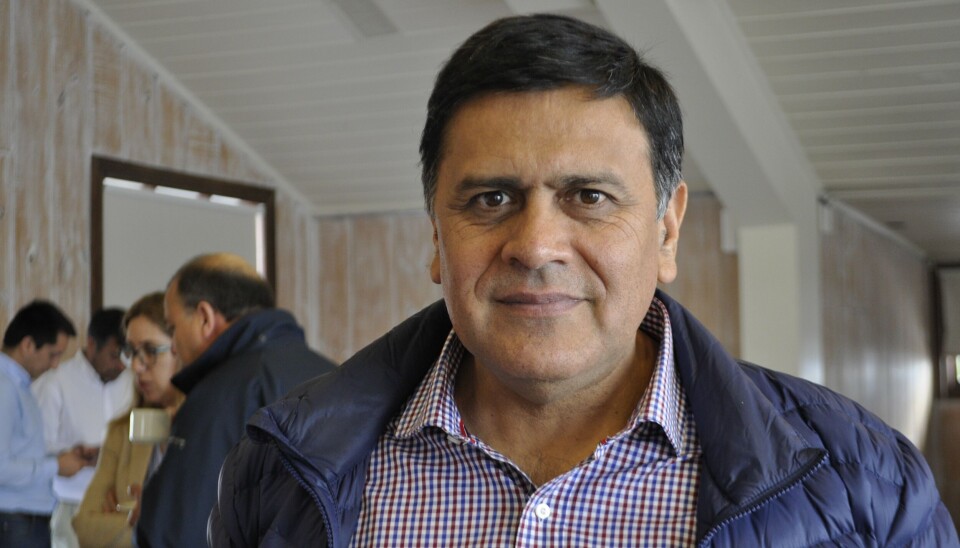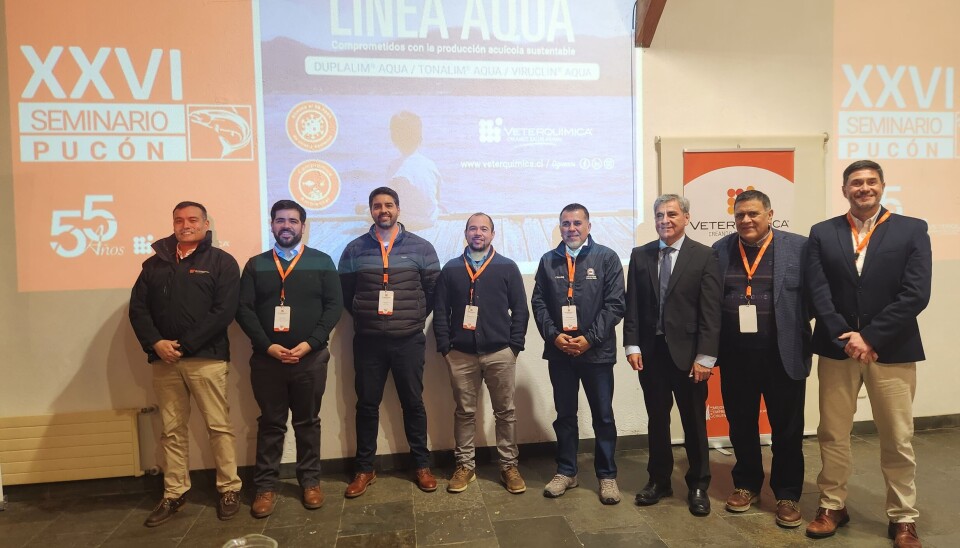Interview

"A decrease in Renibacterium salmoninarum in breeders is observed"
Veterquimica states that the vaccination response to combat the BKD pathogen affecting salmon farming is good, with a strong decrease in cases.
A few days ago, the traditional Veterquimica seminar was held in Pucón, where the company presented on the "Immune Response and Vaccination Efficacy Against Renibacterium salmoninarum." Its Technical Manager, Samuel Valdebenito, provides details to LandbasedAQ.
What is the situation of Renibacterium salmoninarum in Chile?
The pathogen is present in salmon farming, in the three species, being more prevalent in the reproductive phase in coho salmon, and in the seawater phase also more prevalent in coho salmon in the Los Lagos and Aysén regions and in the case of the Magallanes Region the detection of positive fish is in Atlantic salmon.
In general, there is a decrease in breeders and its detection at sea showed low mortalities, however, its presence is concerning due to the effect on other pathologies.
What is the efficacy and immune response of your vaccine against BKD pathology?
The response to vaccination is very positive, as we have cases of notable decrease in the detection of the disease, and in some cases complete cultivation cycles without detection of the pathogen.

What impact does Renibacterium salmoninarum have today in freshwater?
In freshwater, although detection is low and it is also very difficult to detect mortalities due to this cause, the presence of the pathogen is concerning, as it is more likely that fish get infected at this stage and then, once transferred to the sea, the pathology occurs, which undoubtedly aggravates the cases of SRS or another disease.
And at sea?
At sea, Renibacterium can cause the need for antibiotic treatment, in more delicate cases there can be mortalities, its presence also makes the cases of SRS in general more severe.
In which regions does BKD mainly affect national salmon farming?
In all regions, as this pathogen is very difficult to eradicate; it requires constant work on its control through breeder control, vaccination programs, and biosecurity.
Is there still no so-called "silver bullet" against BKD or is it a controlled disease in Chile?
It's not about a silver bullet, the disease is quite controlled and the programs in breeders have reduced its prevalence, now vaccination is contributing to strongly reduce the severity of the disease. The battle is being won and the results are currently positive.




































